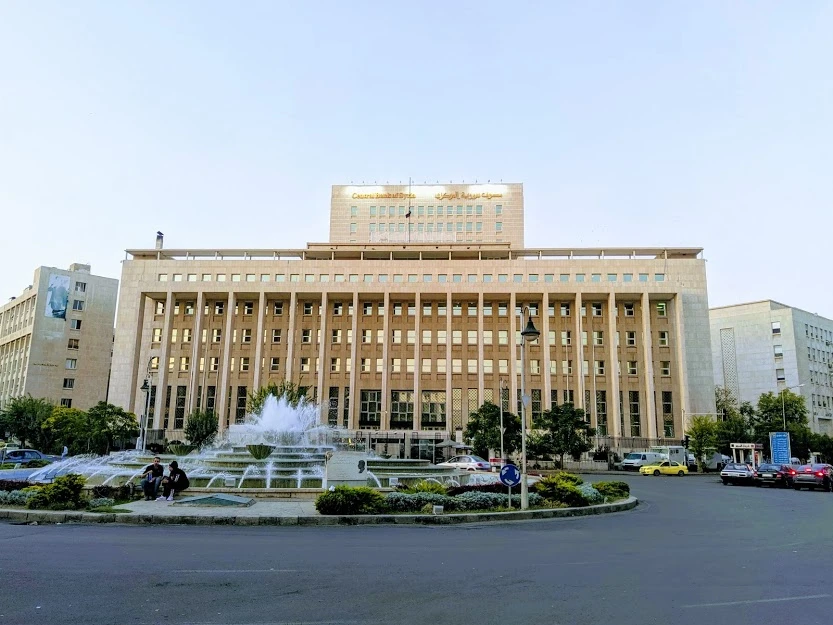EU considers lifting sanctions on Syria following fall of Assad regime
 file photo shows European Union flags flying outside the European Commission headquarters in Brussels, Belgium. (AA Photo)
file photo shows European Union flags flying outside the European Commission headquarters in Brussels, Belgium. (AA Photo)
While the Syrian economy continues to suffer under sanctions, the European Union is awaiting the establishment of a new government to consider lifting its sanctions on Syria following Bashar al-Assad’s fall.
The EU has called for the establishment of an inclusive government in Syria that upholds territorial integrity and minority rights. EU nations expect the new government to diminish Iranian and Russian influence, a requirement widely believed though not explicitly stated.
During her visit to Türkiye, Commission President von der Leyen emphasized at a joint press conference with President Recep Tayyip Erdogan, held at the Turkish Presidential Complex in Ankara on Dec. 17, that forming an inclusive government and continuing efforts against Daesh would be critical in the coming period.
EU sanctions on Syria
In May 2011, the EU suspended all bilateral cooperation with the Syrian government and its supporters, citing escalating violence and human rights abuses.
The EU’s sanctions include arms embargoes, bans on crude oil imports, and restrictions on investment in Syria’s oil and electricity sectors. Assets of Syria’s central bank in the EU were also frozen.

The EU placed export controls on technology that could aid the Assad regime in suppressing communications and banned the trade of cultural heritage items, precious metals and diamonds. Syrian financial institutions were barred from opening branches or subsidiaries within the bloc.
The most recent decision to extend EU sanctions on Syria was made on May 28, with the restrictions set to expire on June 1, 2025 unless renewed. The U.N. has also imposed travel bans and asset freezes on individuals linked to the 2005 assassination of former Lebanese Prime Minister Rafic Hariri.
45-year history of sanctions on Syria
The removal of U.S. and European Union-imposed restrictions was deemed crucial for its recovery following the fall of the 61-year-old Baathist regime and the establishment of an interim government.
Years of civil war, violence against civilians, human rights violations, war crimes and support for terrorist organizations have led to a series of sanctions on Syria. These sanctions, aimed at weakening the Assad regime, have instead placed a heavy burden on the Syrian people.
While exemptions exist for food, medicine and humanitarian aid, access to basic needs remains severely restricted. Syria also faces runaway inflation, a collapsing currency and extremely high unemployment rates.
Rebuilding Syria post-regime will require international aid and a reassessment of these sanctions. Their removal is expected to accelerate economic recovery and improve living conditions, enabling humanitarian assistance to reach those in need.
Sanctions on Syria date back to December 1979, when the U.S. designated the country as a state sponsor of terrorism, according to data from the U.S. Department of State and the Treasury Department. This designation brought export bans, sales restrictions and various financial constraints.
In 2004, Executive Order 13338, which implemented the Syria Accountability and Lebanese Sovereignty Restoration Act of 2003, introduced stricter controls under the International Emergency Economic Powers Act.
Sanctions intensified after the outbreak of the Syrian Civil War in 2011, targeting the energy and financial sectors, freezing the assets of senior officials, and banning U.S. companies from doing business with Syria.
The 2019 Caesar Act, enacted during Donald Trump’s presidency, expanded these sanctions, targeting foreign entities and individuals to further pressure the Assad regime.
Current U.S. sanctions, outlined in Executive Order 13894, include arms embargoes, asset freezes and travel bans. Restrictions on the construction and energy sectors aim to hinder the regime’s sustainability. Syria’s central bank has also been targeted to limit its financial operations.
The U.S. sanctions on Syria remain some of the most comprehensive globally.



